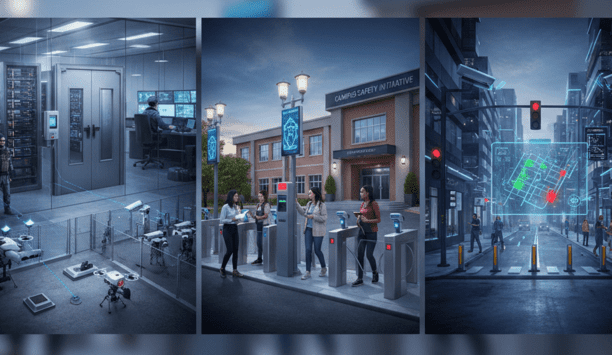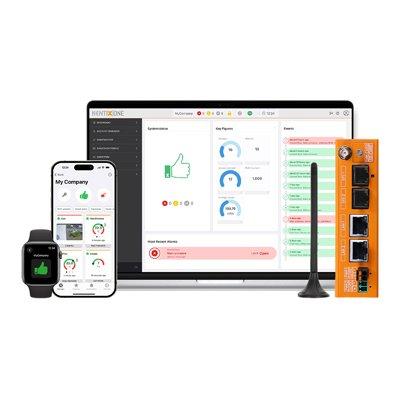To succeed in business, one must be brilliant at one thing. In many cases it’s a skill, such as art, coding, engineering or design. Or that one brilliant attribute can also be a personality trait or a business process. No business will be successful unless it is at least adequate, and preferably superb, in product development, sales, and customer engagement - not to mention finance, planning, marketing and recruiting.
Too many VMS producers are trying to do all these things themselves when they should be doubling up on what they are best at and leveraging the rest. It is a new mindset. Instead of obsessing about which ‘me-too’ product to supply, software producers could make their first priority finding complementary and compatible partners.
Developing a partnership ecosystem
One partner might see the opportunity to sell a solution. Another partner might know a better way to distribute a product. A third partner might provide the vertical expertise to get the customer a perfectly tailored solution. By leveraging partners and developing a partner ecosystem, a company will tend to have more unique offerings and the ability to execute faster in an ever-changing world. All this additional partner horsepower is still no guarantee a company will succeed but partnerships will also give a company a feedback channel.
Many stand-alone companies plod along, never quite failing, but never getting better either. Partners are less likely to tolerate business limbo. They will be quick to utilise great products, and less wedded to the concept if it doesn’t prove out. Because the partners are in close contact with the market, they are the first responders to changing or developing needs. This is why a company should listen very closely to their partners: They are the feet on the street and the ears to the beat!
Open platform matters Producing software takes time, and producing great software takes even longer
All of this is not possible, however, if a company produces closed platform software. This is software whose functions can only be changed by the original developers.
Producing software takes time, and producing great software takes even longer. This means low agility. The partners might identify great opportunities, but before the closed platform software producer can react, the opportunities might be gone - or worse, be grabbed by competitors. The slow reaction capabilities of closed platform providers will frustrate partners and may lead to the worst of all complications in a partnership: distrust.
Add-on modules and intrinsic scripting
When the products are based on an open platform, however, they are adaptable. Then the partners have the ability to change the solution through the open software architecture. Not by changing the basic code (that would be open source) but by add-on modules and intrinsic scripting abilities.
Total integrated solution
Open platform means that the partner can easily extend and enhance the software into a total integrated solution
Open platform means that the partner can easily extend and enhance the software into a total integrated solution to fulfill the customer’s needs with the minimum of effort. This gives agility, and agility means fast go-to-market abilities. Just what is needed in this fast-moving world.
There are some important things to note here. The ways to extend and enhance the software have to be easy and well documented. The partners must have access to training and knowledge sharing. (It does not help to have a system for extending the capabilities of the software if the partners have to guess at the process and the documentation is rudimentary.)
Open access is key
It is important that the business philosophy is based on openness, giving the partners full access to all relevant information. And openness is a two-way street: By being open for your partners, you also have to be open about their business. A partner might be able to develop a highly sophisticated solution but be unable to market the solution. By building a catalogue of partner solutions easily accessible to customers, openness extends to ensure open access to the partners.
Openness is not something a business can just tack on to their approach. It has to be in the DNA of the business from the start. In a Harvard Business Review article entitled ‘Predators and Prey: A new ecology of competition,’ JF Moore says: “A business ecosystem, like its biological counterpart, gradually moves from a random collection of elements to a more structured community.”
Structured business ecosystem Milestone has seen this progression within the company's ecosystem
Milestone has seen this progression within the company's ecosystem. They introduced training and certification requirements as part of the partnership success structure, ensuring knowledge is shared and also used in a way that is most mutually beneficial for all involved.
Moore also writes: “Every business ecosystem develops in four distinct stages: birth, expansion, leadership and self-renewal.” At present, Milestone and its partners are entering into the ‘leadership’ stage, where video enabling is creating opportunities beyond those offered by a traditional video surveillance system, and into areas that provide additional business benefits to our customers.
Video enabling
“A leader must emerge in the ecosystem,” Moore says, “to initiate a process of rapid, ongoing improvement that draws the entire community toward a grander future.” This is the role Milestone has played in leading the industry towards the video enabling phase and redefining the industry’s expectations of what a surveillance system is capable of.
In the article, Moore underlines that “executives whose horizons are bounded by the traditional industry perspectives will find themselves missing the real challenges and opportunities that face their companies.”
Getting connected
Connectors are those people with a wide range of contacts across different social circles
In his book The Tipping Point, Malcolm Gladwell describes what he calls ‘The Law of the Few,’ which says: "The success of any kind of social epidemic is heavily dependent on the involvement of people with a particular and rare set of social gifts." This is based on the 80/20 principal, “which is the idea that in any situation roughly 80 percent of the 'work' will be done by 20 percent of the participants."
He goes on to identify three types of people with these gifts: Salesmen, who are skilled in persuasion and negotiation; Mavens, who collect and disseminate useful information; and Connectors. Connectors are those people with a wide range of contacts across different social circles who can make introductions and create links between otherwise disparate individuals.
Milestone, key connector in physical security industry
In the wider scheme of things, Milestone effectively acts as a ‘Connector’ in the business ecosystem and in the overall physical security industry. Milestone brings together companies who are brilliant in their respective fields and make it easy for them to work together to create a valuable solution for the customer. The company provides the environment for that to occur and work closely with them to ensure that the end result is useful and effective.
At Milestone, partners realised that significant investments in education and training was required to create the demand for the company's products and solutions that the conservative physical security industry required. The value of partnership was learnt and the ‘open’ approach adopted, which was a central part of the thinking behind our software.
Adopting the Scandinavian management model Milestone effectively acts as a ‘Connector’ in the business ecosystem and in the overall physical security industry
Milestone extended this approach to the entire business model, creating the ecosystem that has been the driving force for success. And while the company embraced the best of the Scandinavian management model, its inclusiveness and encouragement of creativity, they still needed to have the courage to make changes to the business, changes which would ensure the best possible position to take on whatever challenges the future might hold.
Milestone partner ecosystem
Milestone have always worked in a partner-driven business mode. The company from the start was designed to be open and partner oriented. The Milestone partner ecosystem is a fundamental part of its mindset and daily operations. It is one of the major reasons for getting the company to the position where it is today.
To be in a company without the partner component would be like cutting the internet and phone cables while reverting to telex and written paper letters! The company would be developing products in the dark, not knowing the demand.
Open business world
Today, Milestone's partners are delivering optimal solutions to mutual customers, building a better and open business world with video as a business enhancer. All thanks to the company's open platform and community approach. To have a flourishing partner ecosystem, one must think not as a corporation but in human terms. Because companies don’t think, humans do.
In all senses of the word, there is one thing that will contribute more to the success of a partnership than anything else; 'Give before hoping to receive'.
Learn why leading casinos are upgrading to smarter, faster, and more compliant systems























